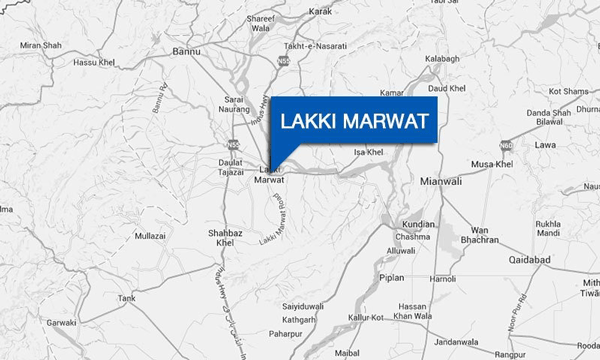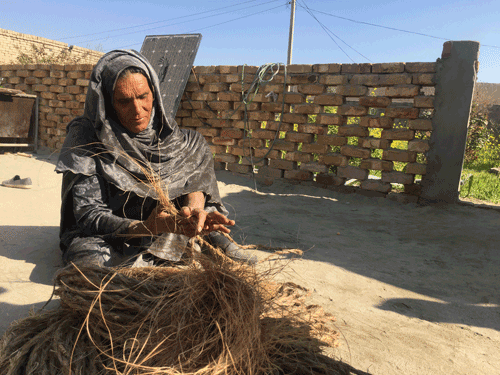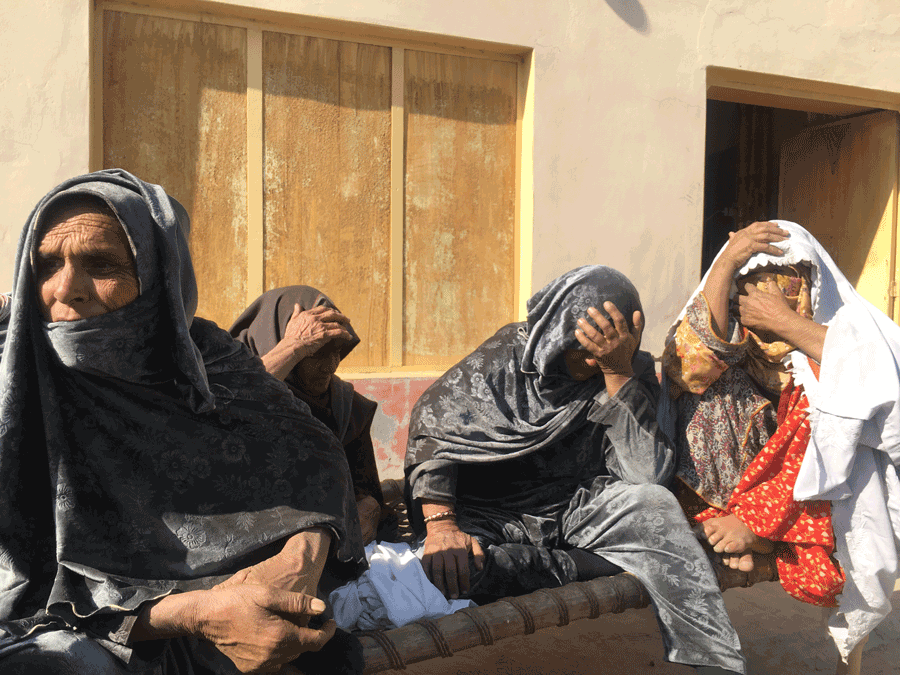The Wailing Widows of Lakki Marwat
By Abdur Rauf Yousafzai | Memories | Published 6 years ago
While the world was busy celebrating the new year on January 1, 2010, in a remote corner of Khyber Pakhtunkhwa (KP), the new dawn was marked by a thundering bomb blast that killed scores of persons.
 After Friday prayers, volleyball players and spectators in Shah Hasan Khel village, in KP’s Lakki Marwat district, gathered for a warm-up match in a local ground. The talented village team had earned dozens of trophies and medals across KP and Punjab for its prowess in the sport.
After Friday prayers, volleyball players and spectators in Shah Hasan Khel village, in KP’s Lakki Marwat district, gathered for a warm-up match in a local ground. The talented village team had earned dozens of trophies and medals across KP and Punjab for its prowess in the sport.
A shiny black pick-up vehicle entered the the ground and stopped at touching distance of the net. “Without wasting a moment, [the] explosive-laden pickup blew up,” says Mumnawaz Khan, the owner of the ground. The blast killed 120 and injured many others. “As usual, the ground was filled with enthusiastic village spectators,” he adds. Friday is considered a holiday, consequently there was a large number of spectators, according to him. Volleyball is the most popular game and a source of entertainment for the inhabitants of these backwaters.
Located 25 kilometres south of the town of Lakki Marwat (the headquarters of the district), Shah Hassan Khel, a village of approoximately 4,000 residents, is located in a barren track of land dependent on rainwater. Despite the lack of basic facilities, the inhabitants of this mud-brick hamlet were generally content with life.

Azad Gula, one of the widows of Shah Hassan Khel, in her home. (Photos by the writer)
“The sound of the fatal blast was heard in Lakki Marwat town,” says a local journalist, Zubair Marwat. The medical facilities in the village were not adequate for the critically injured and maimed persons and as a result many died, he adds.
The ill-fated village now has more than 60 widows and is known as “the village of widows.” Almost a fourth of a total of 400 homes have been directly affected by the attack. As I walked down the deserted streets of the village during a visit after the attack, I could hear the wails of the women and children coming from the houses.
By mid-2008, militancy was gathering momentum in parts of KP and the erstwhile tribal areas. Within a few months, the writ of the government had vanished from the Pashtun belt – particularly Swat, the Frontier Regions, and the then Federally Administered Tribal Areas (Fata), including Shah Hassan Khel village of Lakki Marwat. “One of the elders of Shah Hassan Khel was outspoken and would talk against the militants,” says Nazim Abdul Malik, narrating the background to the deadly incident. “He was abducted and [his] dead body arrived in a few hours to silence the voices against militants.”
The villagers then formed an anti-Taliban civil militia, locally referred to as the Aman Lashkar. The brave villagers launched an attack on the militants and compelled them to leave the region. During those days, the surrounding communities were also dependent on Shah Hassan Khel’s Lashkar and were rescued on many occasions from the brutality of terrorists. Ashraf Ali, the local leader of the terrorist group, was killed in the tribal areas later, in an army operation, according to the villagers. “Ashraf sent messages of revenge but we ignored them,” says Nazim Malik, a local. The Aman Lashkar and the local police had underestimated the power of militants, he adds. The militants had chosen a young resident of the village, Obaid Ullah, to drive the explosive-laden pickup. As he did so, he waved at the police and villagers, with whom he was acquainted. In the suicide attack, he also ended up killing his own brother, who was among the spectators.
One of the deceased, Abdur Rahim belonged to a family of professional drummers. “After Friday prayers, he tied a string around the drum for the last time,” says Zaitoon, his sunken-faced widow. Drum beats provided players with encouragement and energy, while increasing the audience’s zeal, she recalls.
Each family of the victims has received Rs 300,000 as compensation. The unforgettable blast has ruined many families and lives, including that of Nawait Bibi. “I don’t roam in [the] village, nor visit relatives, fearing they might consider me a beggar,” says Nawait. “I lost each and everything; I couldn’t protect my universe from collapsing in front of my eyes,” she continues, adding that now merely breathing feels burdensome. She lost all three of her sons, and her husband in the attack and now lives with her brother. “The pain is incurable and the loss is irreparable,” the visibly shattered Nawait says in a hopeless tone. “We [widows] meet sometimes and discuss the time we had spent with [our] sons and partners.”
Some women have grandchildren, who are now orphans. Such families earn Rs 120 per day by selling the wild plants and weeds that grow around these parts, to the Dil Jan Foundation (DJF), a local NGO. The DJF provides free school tuition and organises a medical camp every Thursday. “The then chief minister, Haider Khan of the Awami National Party (ANP), visited the spot and pledged [a] model village” says Nazim Malik. “But nothing changed in health, or education or in any other sector,” he added.
Many widows, including Gul Sehra, Deen Bibi and Azad Gula, lost their loved ones in the blast. All of them are dependent on their brothers or in-laws. “We were not sunken and miserable like this before the suicide attack,” says Azad Gula, while making a rope from the weeds. “The attack killed them [male family members] and mentally paralysed us,” she added. The blast has created an imbalance in the ratio of males to females in Shah Hassan Khel, as it killed only males.
The village has not witnessed any uplift or improvement schemes by the state or the international community, after the tragic incident. “They should build schools, hospitals and a sports ground in the name of the martyrs,” says Abdul Malik. The youth, meanwhile, have been motivated by Malik and other locals to resume their favourite sport. “People don’t watch volleyball anymore as [the blast] killed the whole team and many supporters,” said one player hurling the ball over the net.
The widows often visit the graveyard, “We talk, cry and complain to the mounds of sand,” says Nawait. Many mothers have removed the trophies and medals from their homes; what was once a source of pride has now become a source of trauma for them.


